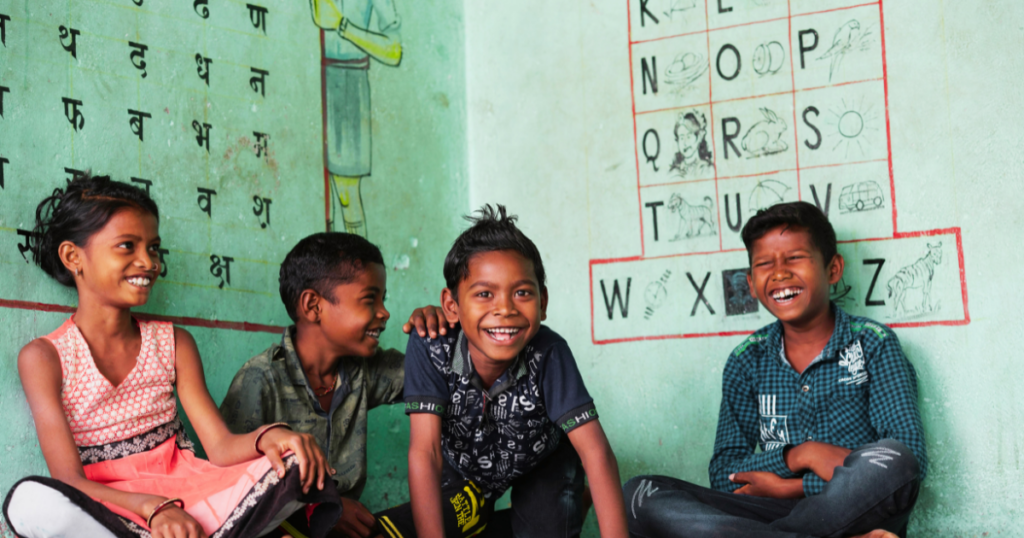The definition of school readiness is located within a framework that has two characteristic features: transition and gaining competencies and the readiness of three entities, children, families and communities, and schools themselves. There is enough evidence at the global and national levels to establish the role of school readiness in the continuity of education in the later stages, and also its contribution to the emotional well being and economic gains for the individual. Low levels of school readiness among students entering Grade 1 impact the continuity of their education later in life.
At the policy and programme levels, a series of initiatives from the Government of India in the form of signing international declarations (Mid day Meal scheme, National Nutrition Mission for early childhood care and education) and national level initiatives like the Rajiv Gandhi Creche Scheme, along with the National Education Policy emphasising on achieving foundational learning by enabling early childhood education have all contributed to building awareness and account ability in the system providing for
early childhood education. The recently released National Curriculum Framework for Foundational Stage in 2022 by the Ministry of Women and Child Development provides clear guidelines regarding the pedagogy and curriculum to achieve school readiness.
There is a learning crisis in India. A major reason for this crisis is lack of school readiness that begins before students enter Grade 1. 70% of the students (4 year olds) are in preschools, but poor quality of education at both anganwadi centres and private preschools leads to low school readiness among students transitioning to primary schools. Factors affecting school readiness are manifold. The lack of regulatory mechanisms for private preschools and anganwadis providing Early Childhood Education in India leads to a variation in the philosophy, pedagogy and curriculum. Access to preschools, enrollment and even attendance varies across regional, class and caste lines. The ambiguity of roles and responsibilities of the two ministries governing anganwadi centres in India leads to inefficiency in monitoring and evaluation of curriculum, pedagogy and infrastructure. Nipun Bharat, the implementing agency for achieving foundational learning and numeracy entails assessing school. However, it lacks a comprehensive standardised tool for assessment. Several socio-economic factors impact the school readiness of the child entering Grade 1.
The major challenges that hinder achieving school readiness among the preschoolers are parents’ demand for pedagogy that is developmentally inappropriate and systemic challenges arising due to lack of teacher accountability, lack of implementation of regulations for private preschools and inter ministerial collaborations. Absence of assessment framework to measure child and parent’s school readiness acts as another challenge leading to low quality of early childhood education and eventually students not being ready for primary schooling.
Authors: Dr. Shweta Gaur & Sahana VP
Contributors: Swetha Guhan and Naveen Raj (Key Education Foundation)




